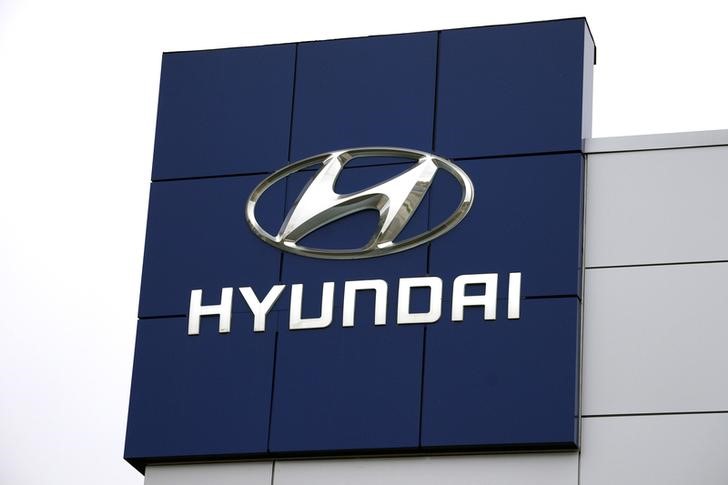By Hyunjoo Jin
SEOUL (Reuters) - South Korea's Hyundai Motor Co (KS:005380) on Thursday reported a fourth straight quarterly profit decline, pulled down by a plunge in the Russian rouble and increased buying incentives in the United States.
The result is likely to fuel discontent among investors, who expect the automaker to raise its year-end dividend later in the day to appease those dismayed by slowing growth and involvement in a $10 billion (7 billion pound) property purchase.
Hyundai, the world's fifth-biggest automaker when coupled with affiliate Kia Motors Corp (KS:000270), splashed out on land for new headquarters as economic turmoil in Russia undermined earnings in a country where the pair rank second, while a weak yen made Japanese cars cheaper in the U.S., its No.2 market.
"We expect competition to intensify in overseas markets, while makers of imported cars step up sales, boosted by tariff cuts and currency effects in the domestic market," said the automaker in a statement.
In October-December, net profit fell 19 percent from a year earlier to 1.66 trillion won ($1.53 billion), compared with the 1.98 trillion won average estimate of 14 analysts polled by Thomson Reuters I/B/E/S.
The decline came as a weaker won against major currencies and strong vehicle sales helped revenue rise 8 percent to 23.57 trillion won, the automaker said.
Hyundai's Russian division may have swung to an operating loss in the quarter as a decline in the rouble - which lost nearly 30 percent against the won in the fourth quarter alone - likely raised the cost of importing vehicles from Korea, analysts said.
In the United States, Hyundai increased sales incentives to combat competition from Japanese rivals and revive demand for mainstay models such as the Sonata and Elantra sedans, analysts said.
To cope with Japanese competition in the U.S., Hyundai plans to "adjust vehicle prices within acceptable levels," Vice Chairman Chung Eui-sun was quoted as saying last week by local media.

Shares of Hyundai extended losses after the earnings release, down 3.8 percent versus a 0.2 percent decline in the benchmark Kospi index (KS11). The stock fell 29 percent last year, when the property buy triggered a sharp selloff and promises of higher dividends.